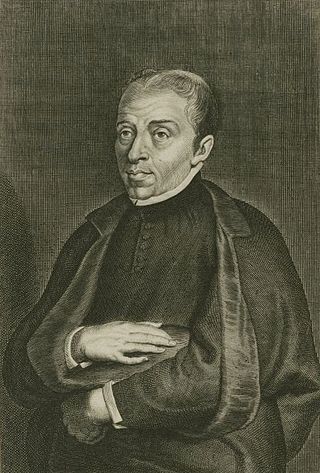Related Research Articles

Cape Verde is known internationally for morna, a form of folk music usually sung in the Cape Verdean Creole, accompanied by clarinet, violin, guitar and cavaquinho. Funaná, Coladeira, Batuque and Cabo love are other musical forms.

Alonso Lobo was a Spanish composer of the late Renaissance. Although not as famous as Tomás Luis de Victoria, he was highly regarded at the time, and Victoria himself considered him to be his equal.

Duarte Lobo was a Portuguese composer of the late Renaissance and early Baroque. He was one of the most famous Portuguese composers of the time, together with Filipe de Magalhães, Manuel Cardoso, composers who all began their academic studies as students of Manuel Mendes. Along with John IV, King of Portugal, they represent the "golden age" of Portuguese polyphony.
Manuel Cardoso was a Portuguese composer and organist. With Duarte Lobo and John IV of Portugal, he represented the "golden age" of Portuguese polyphony.
Pedro de Escobar, a.k.a. Pedro do Porto, was a Portuguese composer of the Renaissance, mostly active in Spain. He was one of the earliest and most skilled composers of polyphony in the Iberian Peninsula, whose music has survived.
Portugal has a long music history, beginning around the year 600 C.E, which accompanied and strongly contributed to the development of the music history in Europe.

The Cathedral of Évora is a Roman Catholic church in the city of Évora, Portugal. It is one of the oldest and most important local monuments, lying on the highest spot of the city. It is part of the historical city centre, and the seat of the Archdiocese of Evora.
Manuel Machado was a Portuguese composer and harpist. He was mostly active in Spain, as he was born when the kingdoms of Portugal and Spain were in a dynastic union.
Filipe de Magalhães was a Portuguese composer of sacred polyphony.
Estêvão Lopes Morago was a Spanish-born composer who studied, lived, worked and died in Portugal. He is one of the most important polyphonists in the music history of Portugal. Another representative of the high level of cultural interchanges between the two countries, as some of the highest figures of the peninsular cultural history have moved around between the two countries freely and mostly in a way unrelated to the political events of the time.
Cosme Delgado was a Portuguese Renaissance composer. He was born in Cartaxo and held the positions of cantor and mestre de capela at the Cathedral of Évora, where he was well renowned both as a composer and as a teacher. The most important of his students was Manuel Mendes, a relevant figure of the Portuguese polyphonic school. His works – masses, motets, lamentations, and one theorical essay – were left by testament to the Convent of Espinheiro in Évora.
Diogo Dias Melgás was a Portuguese composer of late-Renaissance sacred polyphony.

Fantcha is a Cape Verdean singer.

The Roman Temple of Évora, also referred to as the Templo de Diana is an ancient temple in the Portuguese city of Évora. The temple is part of the historical centre of the city, which was included in the classification by UNESCO as a World Heritage Site. It represents one of the most significant landmarks relating to the Roman and Lusitanian civilizations of Évora and in Portuguese territory.

Évora is a city and a municipality in Portugal. It has 53,591 inhabitants (2021), in an area of 1,307.08 square kilometers (504.67 sq mi). It is the historic capital of the Alentejo and serves as the seat of the Évora District.

Quintal da Música, abbreviation: 5tal da Música is a music pub located in the downtown area of Praia, the Plateau and is located at 70A Avenida Amílcar Cabral in the northern part of the center, across Rua António Pusich and south of Rua António Macedo. It is one of the most famous and most used pubs and music pubs in Cape Verde.
References
- Robert Stevenson, "Manuel Mendes". The New Grove Dictionary of Music and Musicians, ed. Stanley Sadie. 20 vol. London, Macmillan Publishers Ltd., 1980. ISBN 1-56159-174-2.